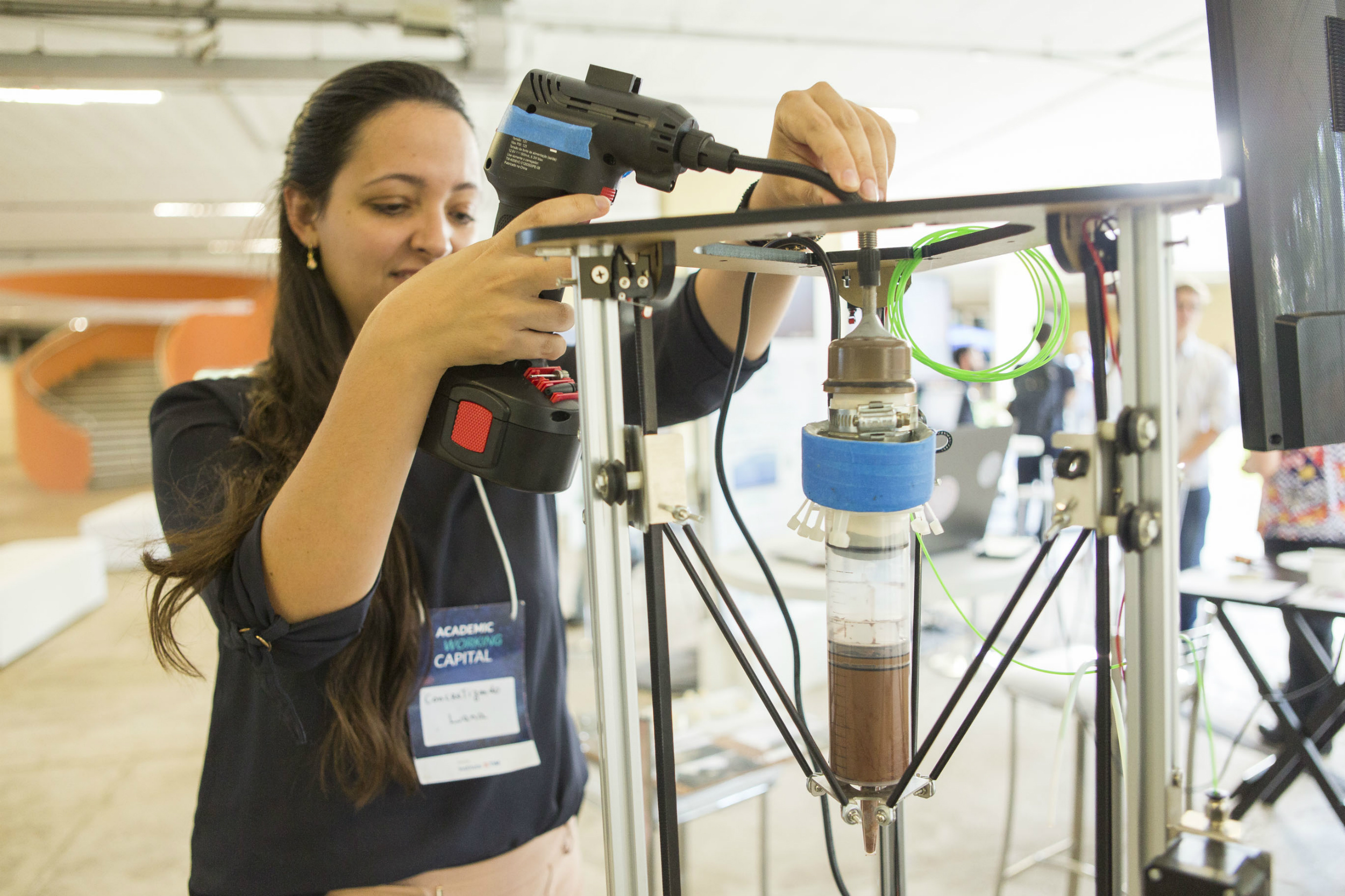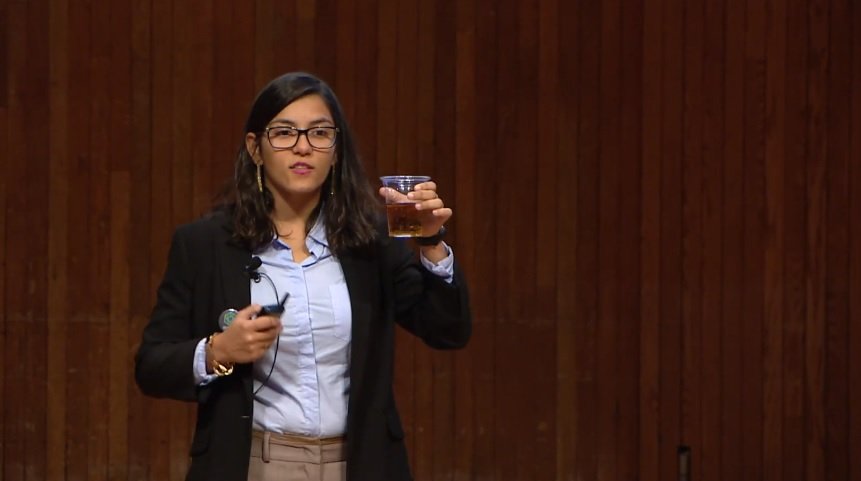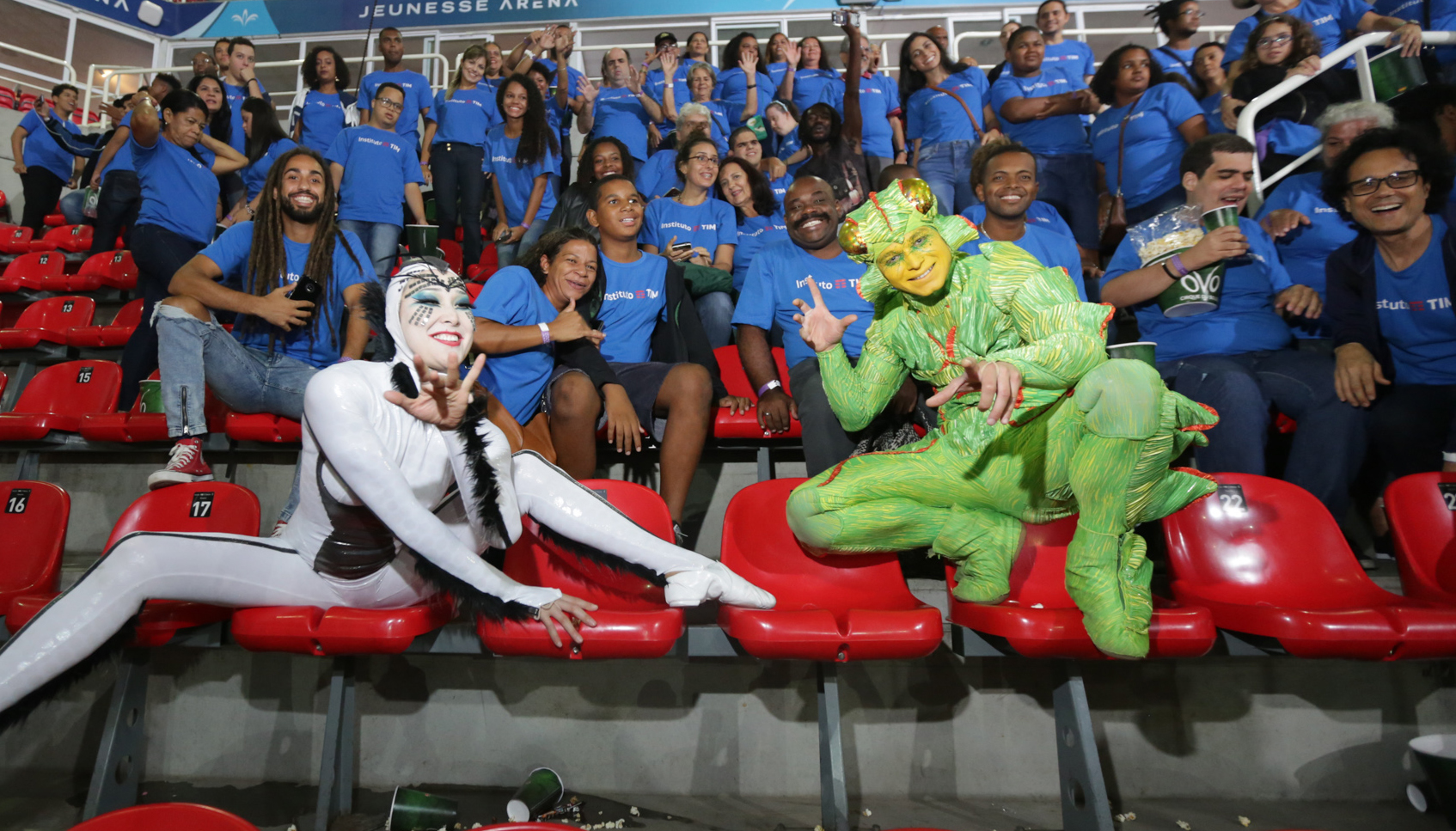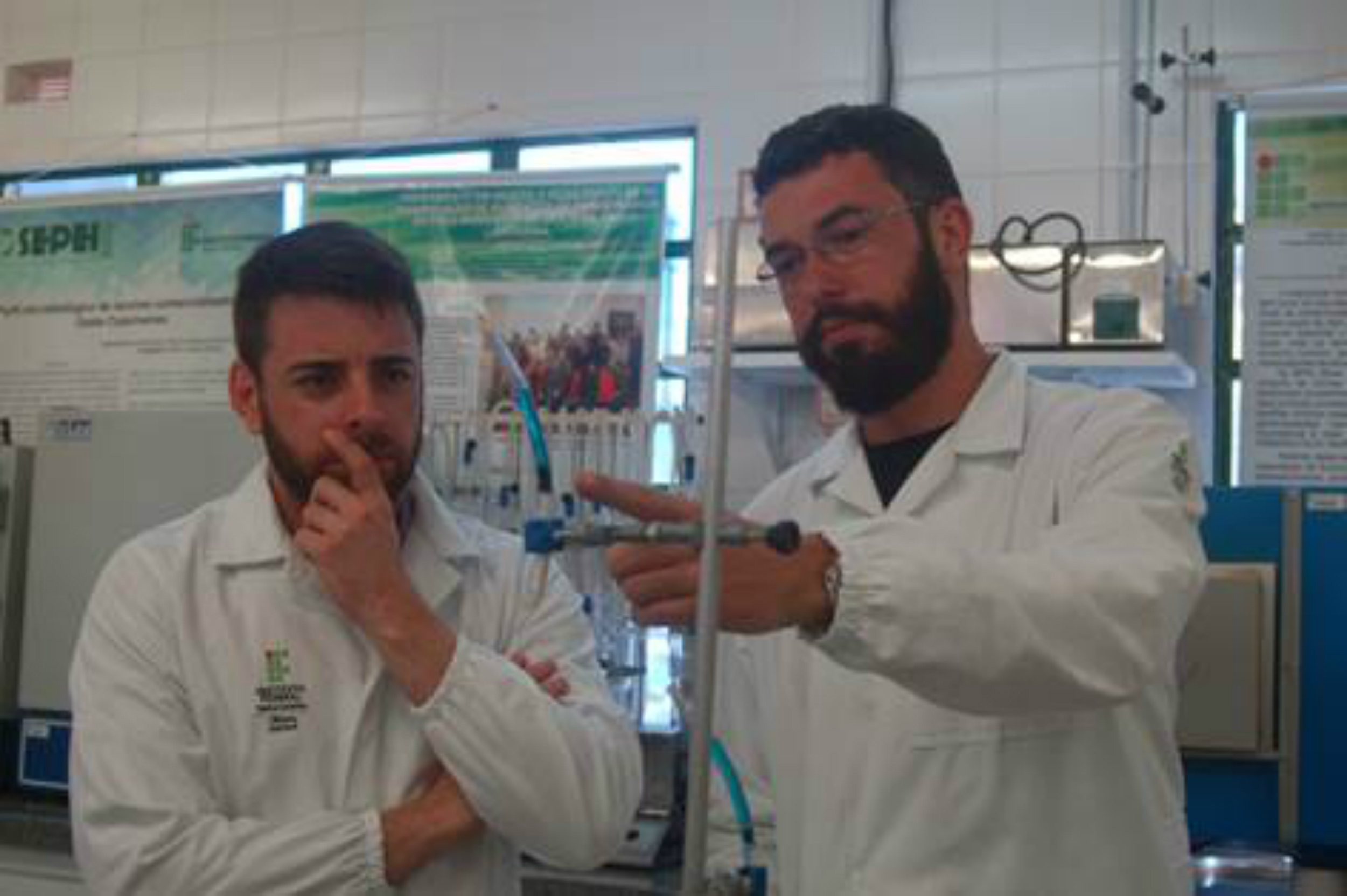
After an 11-month journey and with a training methodology fully adapted for the virtual model, the Academic Working Capital (AWC) ended its 6th edition by presenting the projects at the Investments Trade Show. The most anticipated moment by the program’s participants, the Trade Show also took place remotely, in the morning of July 10 and it was open to the public.
At the event’s opening, Marcio Lino, TIM’s ESG sector director, congratulated the participating university students and AWC’s manager and leader teams, and highlighted their commitment, especially during the challenging pandemic times. “This link between the innovation world, investors and big companies and universities is what drives technology in Brazil and what makes successful companies”, he stated.
A video with a few testimonials was shown to get the public to know a little more on how the young people’s experience was throughout the project; “Throughout the program we faced many challenges, nobody expected the pandemic to last so long and we had to adapt ourselves. And we grew a lot with AWC and this whole situation. Reaching today and looking at everything we did shows how enriching our journey was. It was an experience I never thought I’d have”, reported Eduardo Ichige, a mechanical engineering student.
Next, Maurício Vilar, Tembici’s CEO, presented the startup’s trajectory, which is responsible for a shared bike system. “Tembici was also created from an End of Course Paper. And today it is Latin America’s leader in micro-mobility, employs 700 hundred people and is contributing to improve people’s mobility. Fall in love with what you are trying to solve”, he stated.
As the Trade Show’s high note, the groups had the opportunity to present a three-minute pitch on their solutions to an evaluation board and answer their questions and comments. The guest board was comprised of eight participants, among them potential investors, market professionals, innovation experts and TIM’s innovation leaders:
– Andrea Resende, Development Impact Executive at Kunimi
– Diogo Dutra, partner-director at CAOS Focado
– Fábio Zoop, investor-angel at GVAngels
– Thiago Matsumoto, shareholder and CMO at Atlantic Hub
– Fabiano Nagamatsu, master in business administration focused on Innovation Serious Games and one of the top 10 most influent persons in mentorship and investment of Startup Awards 2019
– Fernanda da Silveira Joia, Extension and Community Affairs Director at Unifenas
– Alexandre Dal Forno, Head of Corporate Marketing & IoT at TIM Brazil
– Janilson Bezerra, Director of Innovation & Business Development at TIM Brazil
Meet the Business Models developed at AWC’s 2020 Edition
Ânima: social media monitoring and discipline app.
Axis Smart Chair (ASC): smart chair that fixes bad posture amidst the mass adoption of home office.
Bilíngua: app that teaches Brazilian Sign Language for hearing-impaired children.
Growing Future: device that brings practicality and efficiency in growing medical cannabis.
IBRA: automated analysis and moderation program of social media content for companies.
Organa Kypseli: creation of an artificial skin, an alternative to animal tests to evaluate skin-care products in the cosmetics industry.
Kelpie: development of horse saddles structural components, aiming at more comfort and safety.
Terapio: app that aids in the remote support of physical therapy patients.
A New Journey
With a different working schedule from previous editions, the 2020 AWC aimed at encouraging the creation of projects that would contribute to the challenges brought on by the COVID-19 pandemic in health, education, income generation, communication, mobility and other areas. In addition, as part of Instituto TIM’s commitment to diversity and to encourage more participation of women and young black people, gender and race were included as tie-break criteria in selecting this edition’s projects.
Despite the challenges faced, AWC’s 6th edition counted with the participation of 60 students from all over Brazil, 63% from the Southeast, 21% from the South and 16% from the Northeast. With regards to gender, among all the selected people, a third was comprised of women.
At the event’s ending, Marcio Lino strengthened the importance of entrepreneurship as a driver of human development. “Each developed project is a life story. We had several life stories passing through AWC. Our work here at TIM Brazil and Instituto TIM makes sense when we can give this contribution to society. We want to transform and create people that follow on this path of transformation”, he ended.






































































































